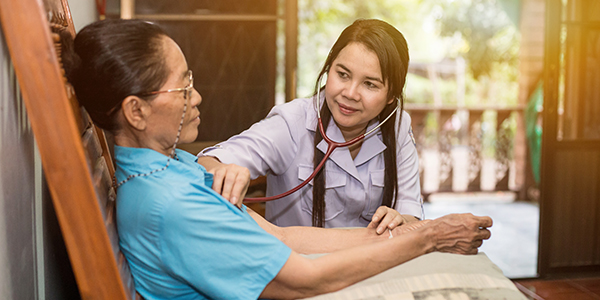Despite being a **middle-income country**, Thailand has emerged as a global leader in the pursuit of **universal health coverage (UHC). Thailand has ensured that all citizens have access to comprehensive healthcare since the implementation of its **Universal Coverage Scheme (UCS)** in 2002. This has resulted in improved public health outcomes and reduced financial hardship.
Thailand’s UCS is a testament to the potential of political commitment, wise policy design, and efficient resource management to achieve health equity, despite the constraints of limited budgets. The World Health Organization (WHO) and health policy experts have widely praised the UCS.
### Background: A Visionary Approach to Health Reform
Thailand’s healthcare system was segmented and unequal prior to 2002. Although formal sector employees were insured through the **Civil Servant Medical Benefit Scheme (CSMBS)** or **Social Security Scheme (SSS)**, nearly **30% of the population** lacked any coverage, particularly those in rural or informal employment.
In 2001, the Thai government implemented a bold initiative: the establishment of **universal health coverage** through a **tax-funded scheme** that would ensure access to healthcare for all, irrespective of their income or employment status.
The outcome was the **Universal Coverage Scheme (UCS)**, which was also referred to as the “**30 Baht Scheme**” due to the fact that it initially imposed a nominal co-payment of 30 baht (\~\$1 USD) per visit. This fee was subsequently abolished for the majority of services.
### Key Characteristics of the UCS
* **Extensive Coverage**: UCS provides coverage for a variety of services, including emergency services, outpatient and inpatient care, maternal and child health, chronic disease treatment, essential medications, surgery, and even **dialysis and antiretroviral therapy for HIV/AIDS**.
* **Eligibility**: All Thai citizens who are not covered under other schemes (such as CSMBS or SSS) are automatically eligible. UCS is currently enrolled by more than 75% of Thailand’s population.
* **Funding**: UCS is **fully tax-funded** and operates on a **capitation-based system**. Here, healthcare providers receive a fixed amount per enrolled patient, which encourages efficiency and preventive care.
* * **Primary Care Gatekeeping**: Patients are required to register with a **designated primary care unit**, which serves as the initial point of contact and refers them to specialists or hospitals as necessary.
* **No Point-of-Service Charges**: Patients do **not pay at the point of care** for the majority of services available under UCS, which mitigates financial risk and out-of-pocket expenses.
### Impact and Achievements
The UCS in Thailand has resulted in **measurable enhancements** in the financial protection and health of the population:
* **Enhanced access** to healthcare, particularly in rural and underserved areas * **Substantial decrease** in out-of-pocket healthcare expenditures * **Declinations in catastrophic health expenditure and medical impoverishment** * **Improved health indicators**, such as maternal and child health, life expectancy, and infectious disease control * **High satisfaction** among beneficiaries with service quality and access
A rare combination in global health systems, Thailand’s approach has been widely praised for its integration of **efficiency, equity, and sustainability**.
### Obstacles and Ongoing Reforms
UCS continues to confront persistent obstacles, despite its accomplishments:
* **financial sustainability**: The maintenance of service quality on a restricted budget is a concern as the population ages and the demand for chronic and specialized care increases.
* **Workforce strain**: Public hospitals and clinics, particularly those located in rural regions, frequently encounter **staff shortages** and **heavy workloads**.
* **Variation in service quality**: Disparities exist between urban and rural facilities in terms of resource availability and the quality of care provided.
* **Decentralization and political shifts**: Even though the UCS is widely supported by the public, the continuity of health policy has occasionally been disrupted by frequent changes in government.
### A Model for Other Countries
Thailand’s universal health coverage (UCS) is frequently referenced as a **model** for other developing nations that are interested in establishing or expanding universal health coverage. Thailand’s experience has provided several critical lessons, including:
– **Political will is essential** – **Primary care is the foundation of sustainable universal health systems** – **Cost control mechanisms**, such as capitation and generic medication use, can help maintain budgets – **Health equity does not necessitate a high income—it requires commitment and strategy**
Final Thoughts
The Universal Coverage Scheme of Thailand is a powerful illustration of how **universal healthcare can be attained affordably and equitably** in a developing context. The UCS has revolutionized Thailand’s health landscape, enhanced lives, and demonstrated the potential of focused, inclusive public policy, despite the challenges that remain to be overcome.
Thailand is a shining example of what can be achieved with the right vision and the right investment in people’s health, as global momentum for universal health coverage continues to grow.
—
**Interested in the comparison between Thailand and other UHC success tales, such as Costa Rica or Sri Lanka? Please inform me, and I will investigate that matter further. **

Leave a Reply